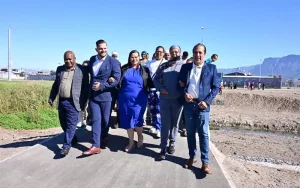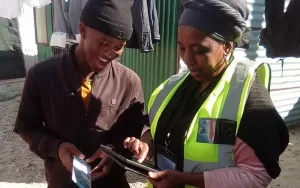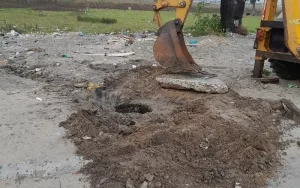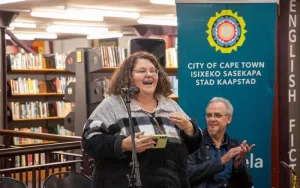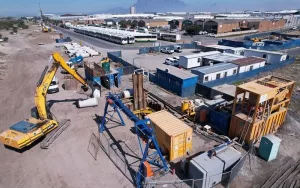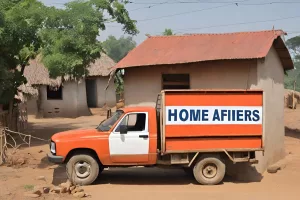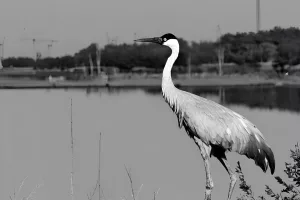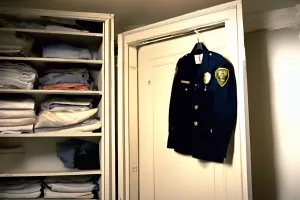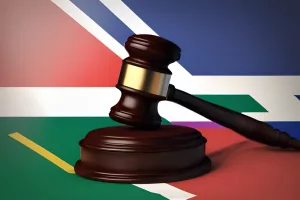Honourable Yvonne Mokgoro was a groundbreaking black woman judge in South Africa’s judicial system, known for her strong advocacy for women’s rights. Her relentless pursuit of knowledge and unwavering commitment led her to make history. Her legacy lives on, inspiring others to strive towards creating a more equitable society. Her passing is mourned, but her lasting impact on South Africa’s judicial system remains.
The unveiling of the Vygekraal pedestrian bridge in Cape Town represents progress, community integration, and safety. The bridge, which connects Kewtown and Bridgetown, provides easy access to schools, colleges, and places of worship. The completion of the bridge was not without its challenges, but it stands as a testament to the collective efforts of residents, officials, and community leaders. The bridge is designed to serve the public, and its purpose is to unify dreams, aspirations, and the shared destiny of its people.
Participate in the City Initiative: Leverage the Household Survey to Influence Your Neighbourhood
The City of Cape Town is conducting a household survey to gain insight into the socioeconomic circumstances of different communities, with over half of the targeted 10,000 interviews already completed. Residents can participate to help shape their communities’ future and enhance service delivery. The collected data is confidential and adheres to the Protection of Personal Information Act, and participation is voluntary. Kantar, a data collection agency, is conducting the survey with safety measures in place to ensure legitimacy and minimize privacy intrusion.
The deliberate removal of manhole covers and the addition of foreign objects leads to severe blockages and overflows, posing a dangerous threat to public health and safety. The community must take responsibility and practice responsible waste disposal to protect the vital infrastructure that maintains the city’s health and cleanliness. The city has initiated awareness campaigns and a hotline to report incidents, but residents must also play a significant role in protecting their city’s health.
The City of Cape Town’s Central Library has launched the Oral History Project, which preserves the stories of local musicians. This innovative project transforms library services into a platform for preserving and educating about music history. Video podcasts are available to the public on YouTube and linked to the Online Public Access Catalog, allowing everyone to experience the vibrant cultural history of Cape Town’s music community.
Cape Town is upgrading its aging water and sanitation infrastructure due to population growth and deteriorating pipes, with the Water and Sanitation Directorate aiming to replace 50,000 meters of water pipes by 2023/2024. The city has already replaced over 40,315 meters by March 2024, with dedicated teams working on projects across various locations to achieve significant progress towards their goal. This infrastructure overhaul is a story of resilience and determination, securing Cape Town’s sustainable future.
Prince Harry has returned to the UK to commemorate the 10th anniversary of the Invictus Games, an event he founded in 2014 to celebrate wounded, injured, and ailing servicemen and women. His visit is filled with duty, loyalty, and his decadelong allegiance to the cause. Despite his father’s battle with cancer, Prince Harry’s commitment to his royal duties and the Invictus Games remains unwavering. Although a reunion with his father may not be possible during this trip, the royal family’s resilience and dedication to their respective causes remain steadfast.
South Africa is showing its strength and resilience in the face of the devastating collapse of a building in George. President Cyril Ramaphosa has expressed his condolences, and emergency personnel and volunteers are working tirelessly together in ongoing rescue efforts. The unity and compassion displayed in the face of tragedy are a testament to the human spirit’s capacity to withstand adversity. Despite the mounting death toll, the ongoing operation is a beacon of hope and solidarity for the nation.
Facing Nuclear Threats: Cape Town’s Fire and Rescue Hazmat Team Responds with Expertise and Courage
Cape Town’s Fire and Rescue Hazmat Team responded to a distress call regarding a container of radioactive material found at a scrapyard. With their expertise and stateoftheart technology, they followed strict procedures to evaluate the risk and remove the waste safely. Their professionalism was crucial in handling this potentially catastrophic nuclear incident, highlighting their commitment to public safety and making them the city’s protectors.
The Department of Home Affairs in South Africa has launched a groundbreaking initiative called “Home Affairs on Wheels”, bringing government services closer to the populace through a fleet of mobile office trucks. The trucks offer fullyequipped services, including applications for passports, smart IDs, birth, marriage, and death certificates, and will be stationed in towns and villages at specific times. The initiative aims to reduce the costs and distances rural residents incur to access these services, with plans to add a hundred more trucks each year until they reach a thousand.
The Launch of Mokopane Office and Mobile Office Trucks: An Evolution in Public Service Delivery
Exciting news for South Africa! President Cyril Ramaphosa launched the Department of Home Affairs’ new Mobile Office Trucks in Mokopane, Limpopo, on May 7, 2024. Dubbed ‘Home Affairs on Wheels,’ these trucks aim to improve accessibility, speed, and costeffectiveness of public services, offering vital services such as smart ID, passport, birth, marriage, and death certificate applications. The initiative plans to deploy 100 trucks, expanding the fleet by at least 100 trucks annually, aiming to reach a total of 1,000. This marks a significant evolution in the record of public service delivery in South Africa.
Eqinisweni Secondary School in Gauteng has been hit by a series of tragic student suicides, leaving the community devastated. The Gauteng Department of Education’s psychosocial support unit has stepped in to aid the school and reiterated the importance of mental health awareness and intervention. Students struggling with personal issues are encouraged to access resources such as Childline and the South African Depression and Anxiety Group.
The Salt River Market in Cape Town is more than just a place to buy and sell goods. It’s a vital community hub that has helped sustain families for over a hundred years. However, the City of Cape Town has issued eviction notices to the traders, sparking concerns over the government’s commitment to the underprivileged. This move has been seen as an assault on the economically disadvantaged and has highlighted the neglect of the Salt River community.
In George, South Africa, a massive building collapsed, trapping people underneath. Emergency teams were quickly deployed, and urgent information was disseminated across social media. The incident highlighted the dangers of construction and the importance of safety precautions and prompt emergency responses. Despite the chaos, the George community showed resilience and unity in the face of adversity.
Devan Cox, a young and fit South African constable, has captured the nation’s imagination with his viral postworkout selfie in his police uniform, which has landed him in hot water with his superiors. Despite the disciplinary action, Cox has remained committed to his role as a lifesaving officer rather than a model. He has become an internet sensation and an overnight star, but his story also highlights the struggle between personal identity and professional obligations in today’s social mediasaturated era.
Parliament is preparing for the transition to the seventh session as the sixth Parliament finishes its tenure. The National Assembly and National Council of Provinces are reviewing bills, motions, and committee reports, with both Houses holding plenaries on Thursday. The week showcases Parliament’s dedication to protecting public interest and adapting to the nation’s everchanging challenges.


